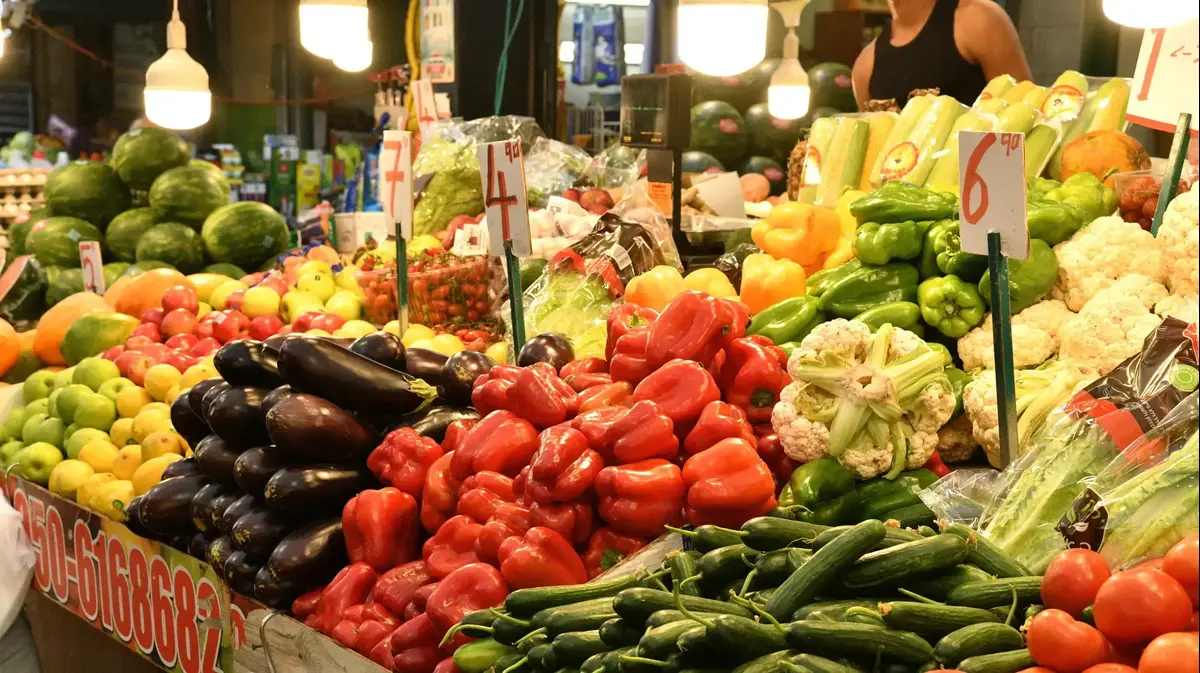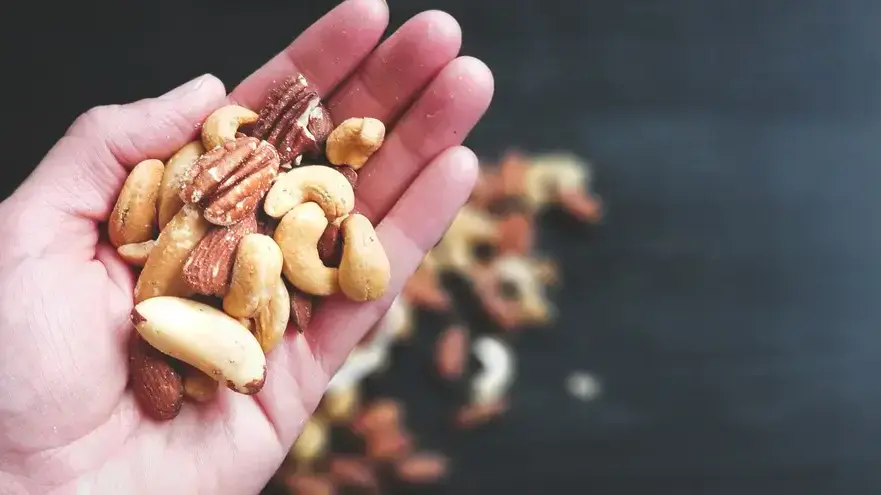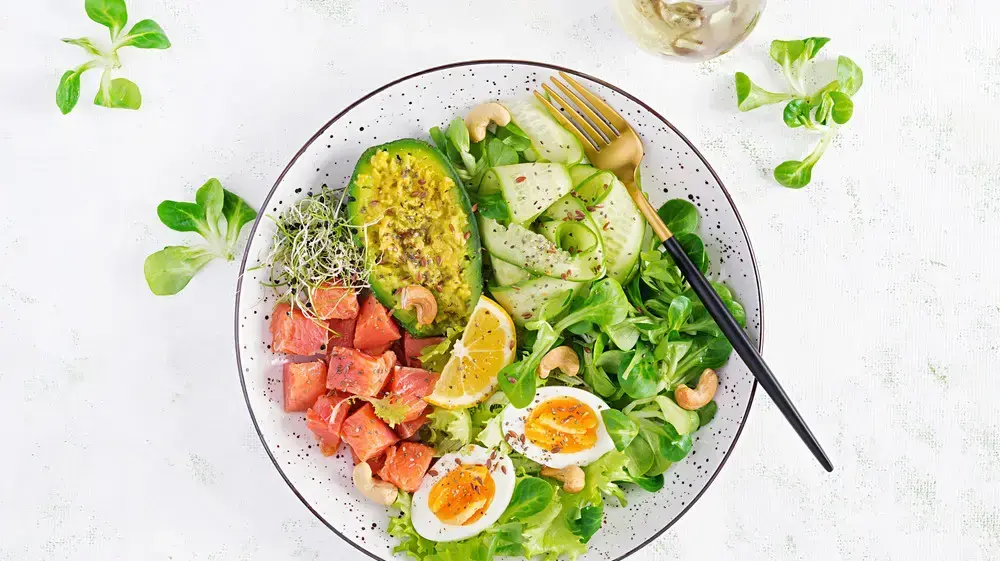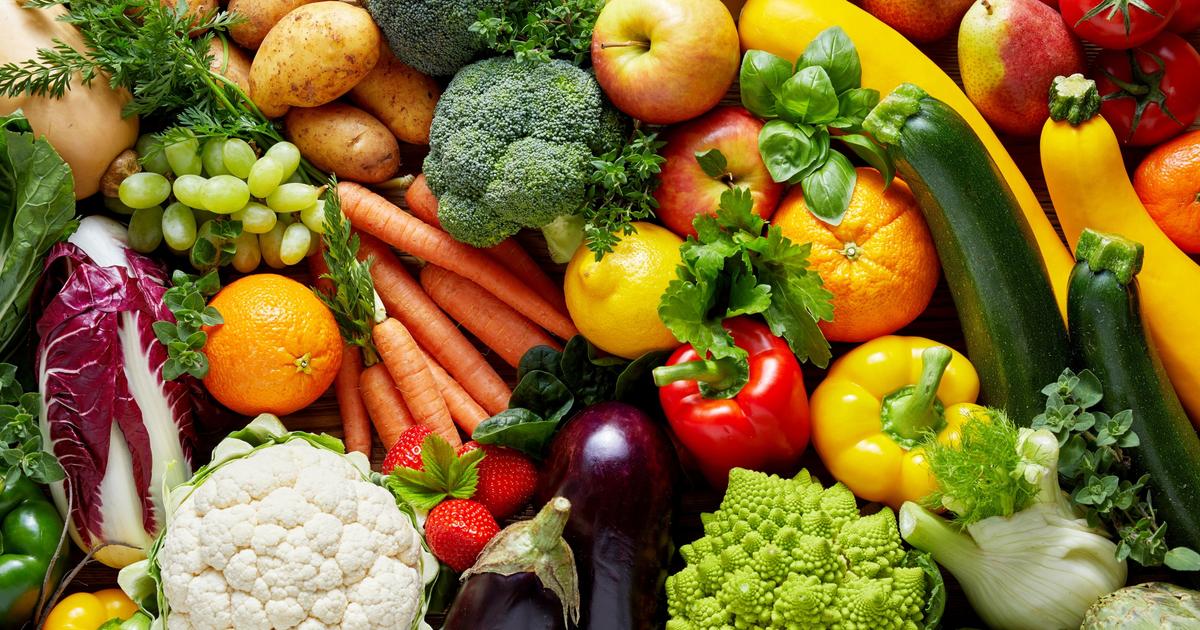health
Nutrition and diet
Preventive nutrition
Which fruits and vegetables contribute especially to the brain?
We all know that fruits and vegetables are important for our health and should be present in the daily menu.
But do you know how important they are to your brain?
probably not.
Luckily there is new and comprehensive research on the subject
Tags
fruits
vegetables
brain
diet
Walla!
health
Monday, 16 August 2021, 07:08 Updated: 07:10
Share on Facebook
Share on WhatsApp
Share on general
Share on general
Share on Twitter
Share on Email
0 comments
A woman with a bad odor from the armpit
Jennifer Aniston
The shower routine of someone who is allergic to water
Elrai Price: The closure is without obligation, the pace should be slowed down ...
Pilates exercises
Weather Gush Dan air pollution
A method of dealing with insomnia
Who and what dietary fiber
Bennett: The future of the holidays depends on the number of vaccinators 5.8.21
Twins from different fathers
A mother was horrified by what she found behind her son's bed
Israel stores 60-plus-year-olds in third vaccine against ...
Five things you may not have known about the brain ("not to be missed" system)
Summer is a perfect season of fresh and delicious fruits and vegetables that can be added at all hours of the day to all kinds of dishes.
But apart from the taste, vegetables and fruits have many health benefits, one of which is for our brain.
A new Harvard study, considered one of the largest surgeries to date, has found that flavonoids, natural compounds that have particularly strong antioxidant properties, and also those that give plant foods their colors, may help slow the forgetfulness and mild confusion that older people often complain about as they age. , Which can sometimes be an early diagnosis of dementia.
More on Walla!
The question is not just how much fruit you should eat, but what
To the full article
The scientists used data from two large ongoing health studies that began in the late 1970s and early 1980s, in which participants periodically completed nutrition and health questionnaires for more than 20 years.
The analysis included 49,693 women with an average age of 76, and 51,529 men with an average age of 73.
They calculated the consumption of more than 20 commonly consumed flavonoids - including beta-carotene in carrots, flavonoids in strawberries, anthocyanin in apples and many other fruits and vegetables.
The study appears in the journal Neurology.
Natural compounds that add color and health.
Peaches (Photo: ShutterStock)
The degree of subjective cognitive decline has earned “yes” or “no” answers to seven questions: Do you have difficulty remembering recent events, remembering things from second to second, remembering a short list of items, following spoken instructions, following a group conversation, or finding your way through familiar streets , And have you noticed a recent change in your ability to remember things?
The higher the flavonoid intake, the more the researchers found the "yes" answers to the questions.
When comparing the 20 percent with those with the lowest intake of flavonoids, the 20 percent with the highest intake found a 19 percent lower chance of reporting forgetfulness or confusion in the top percent.
Felt to emphasize that the study was observational and therefore could not prove cause and effect, although its large size and long duration add to the growing evidence that what we eat can affect brain health.
More on Walla!
List of the cleanest vegetables and fruits, and the ones to watch out for
This is what you must know about the fruits and vegetables you eat
Which of the fruits and vegetables should not be peeled before eating?
B-Cure Laser - Does It Really Help With Pain?
According to senior research editor Professor Deborah Belker, an expert in epidemiology at Harvard University School of Public Health, these long-term findings suggest that early onset of life with a flavonoid-rich diet may be important for brain health in the future as well.
The study controlled diet in addition to flavonoid intake and exercise, alcohol consumption, age and body mass index, among other factors that may influence the risk of dementia.
It is important to note that it is also a sign of depression, the symptoms of which in older people can be misleading and considered as the onset of dementia.
Contributes to cognition.
Sprouts and grapes salad (Photo: Dror Einav)
The researchers examined not only the total flavonoid intake, but also several dozen specific foods containing flavonoids.
Higher consumption of sprouts, strawberries, pumpkin and spinach were most associated with better scores on the subjective cognitive decline test.
The relationships with consumption of onions, apple juice and grapes were significant as well, but weaker.
Dr. Belker pointed to broader policy issues and stressed that "if we can create a world where everyone has access to fresh fruits and vegetables, it should help improve many health problems and extend life expectancy."
Share on Facebook
Share on WhatsApp
Share on general
Share on general
Share on Twitter
Share on Email
0 comments








